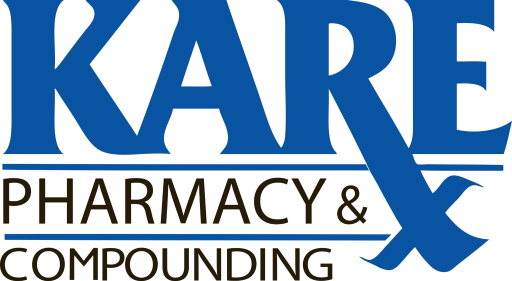
Clinical Information
Use as directed by your healthcare provider. If you miss a scheduled dose, contact your clinic to set a new time. Do not try to inject yourself unless your provider has trained you. Your provider will decide how often and how long you need treatment.
After injection, L-Arginine enters your bloodstream and is turned into nitric oxide. Nitric oxide relaxes the muscles that tighten blood vessels, allowing them to open wider. Blood flow usually improves within 15–30 minutes and can last several hours. Regular use may support better circulation, exercise stamina, and wound healing over weeks to months.
Do not use if you are pregnant, planning pregnancy, or breastfeeding (safety is not proven). Do not use if you have recently had a heart attack or have very low blood pressure, as it can worsen these conditions. Avoid if you are allergic to arginine or any ingredient in this product. People with severe kidney disease, liver cirrhosis, active herpes infections, or uncontrolled asthma should not use this medication unless a specialist approves and closely monitors them.
May increase the blood-pressure-lowering effect of nitrates (Nitrostat), sildenafil (Viagra) and other PDE5 inhibitors, ACE inhibitors (lisinopril), beta blockers, and diuretics, raising dizziness or fainting risk. Can raise potassium when taken with potassium-sparing diuretics like spironolactone. May lower blood sugar further when used with insulin or other diabetes drugs. Use caution with herbal supplements that lower blood pressure, such as hawthorn or garlic. Always tell your provider about all medicines, vitamins, and supplements before each injection.
Very common (more than 1 in 10 people): mild flushing or warmth at injection site, transient drop in blood pressure that may cause light-headedness. Common (1–10 in 100 people): stomach cramps, diarrhea, bloating, headache, gout flare. Uncommon (1–10 in 1,000 people): airway inflammation or worsening asthma, allergic rash, blood changes seen on lab tests. Rare but serious: severe low blood pressure, severe allergic reaction with swelling or trouble breathing. Most mild effects improve within a few hours; seek medical help right away for serious or lasting symptoms.
Store in the original glass vial at controlled room temperature 68–77 °F (20–25 °C). Keep away from direct light; do not freeze. Do not use if solution turns cloudy, changes color, or contains particles. Once the rubber stopper is pierced, use the remaining solution within 28 days or as directed by your pharmacy. Return unused or expired vials to a medication take-back site or follow local sharps disposal rules.
Frequently Asked Questions
Q:How is L-Arginine injection given?
A:A nurse or trained provider will give it into a vein (IV) or a large muscle (IM). Do not self-inject unless your provider has shown you exactly how.
Q:When will I feel results?
A:Improved blood flow can occur within 15–30 minutes. Benefits like better exercise stamina or circulation may take several weeks of regular treatment.
Q:Can I take L-Arginine pills instead?
A:Oral supplements exist, but injected L-Arginine reaches the bloodstream faster and in higher amounts. Ask your provider which form fits your health goals.
Q:Is it safe to use with my blood pressure medicine?
A:L-Arginine can lower blood pressure further. Tell your provider about all BP medicines so doses can be adjusted and your pressure monitored closely.
Q:What should I do if I feel dizzy after the shot?
A:Sit or lie down right away and drink some water. If dizziness lasts more than a few minutes or is severe, contact your provider or seek emergency care.
Q:How do I store the vial at home?
A:Keep it at room temperature, away from sunlight, and out of children’s reach. Do not refrigerate or freeze. Discard any leftover solution 28 days after first use.
Related Products

Vitamin B12 (Hydroxocobalamin) Injection
Sterile injectable form of Vitamin B12 (hydroxocobalamin) for treating or preventing B12 deficiency. Each milliliter contains 2 mg of hydroxocobalamin in an aqueous solution for intramuscular or subcutaneous use. Commonly given to boost B12 levels when oral tablets are not enough or cannot be absorbed.

Myers Cocktail
Myers Cocktail is a sterile premixed injection that combines key vitamins and minerals often used to correct short-term nutrient gaps, support normal energy production, and promote healthy immune function. Each 10 mL single-dose vial contains a balanced blend of magnesium chloride, calcium gluconate, ascorbic acid, B-complex vitamins, and hydroxocobalamin B12. The solution is intended for slow intravenous (IV) administration only under the supervision of a licensed healthcare professional. By delivering nutrients directly into the bloodstream, the formulation avoids losses that can occur in the digestive tract and allows rapid achievement of targeted blood levels. This product is preservative-free and compounded in a USP <797> compliant facility.

N-Acetyl-Cysteine Injection
N-Acetyl-Cysteine (NAC) Injection is a compounded sterile solution that supplies NAC at a 20% strength (200 mg/mL). NAC is widely used in hospitals to help protect the liver after an acetaminophen overdose and to thin mucus in the lungs. It acts as an antioxidant by raising glutathione levels in the body. This formulation contains a small amount of preservative so the vial can be used for multiple doses when handled with proper sterile technique.

Naltrexone Tablets
Naltrexone tablets contain a low dose of naltrexone, a medicine that blocks opioid receptors in the brain and body. At low doses, it is often used by healthcare providers to help support weight-management plans and other immune-related conditions, although these uses are not FDA-approved. The tablets are taken by mouth and are made in several dose strengths so providers can tailor therapy to each patient’s needs.
